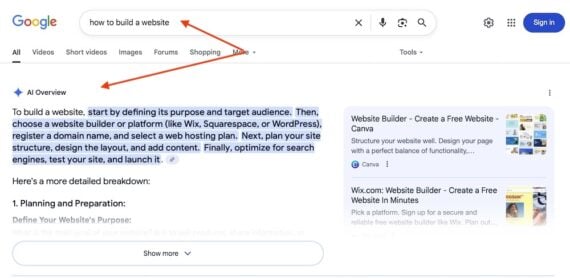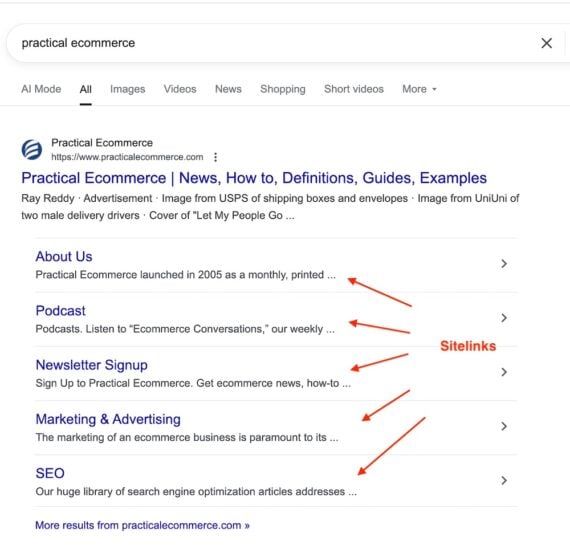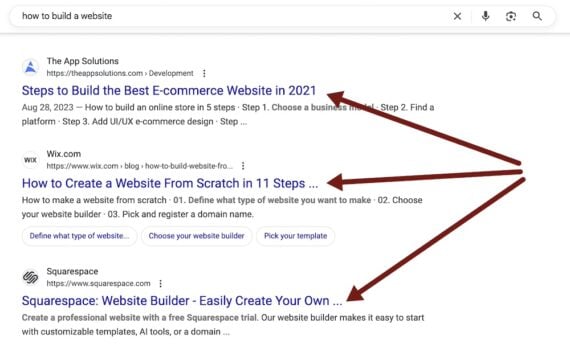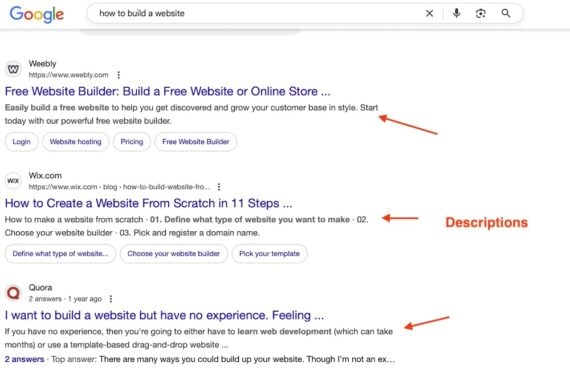Over the years, Google has limited how websites can control their appearance in search results.
Here’s what sites cannot control in Google search.
Sitelinks
For some searches, especially involving brand names, Google shows links below the listing title. These are called sitelinks. Unfortunately, Google’s algorithm often displays sitelinks that are irrelevant or unimportant to the site’s business.
Owners have no control over these URLs. The only methods to remove a sitelink are to delete the page or add the noindex meta tag, but both would also remove the page from all Google searches.
Here are sitelinks for a “Practical Ecommerce” query:
Listing title
The listing title is the most prominent section of a search snippet and largely influences the number of clicks. Google used to display only a page’s title tag for the listing.
A few years ago, however, Google began displaying titles based on search queries, for relevance. The result is often fewer clicks.
There’s no way to stop Google from rewriting a page title. Using an HTML title as an H1 heading increases the likelihood that Google will use it, in my experience, as it aligns the listing title with what searchers would see on the subsequent page.
Listing description
A page’s HTML meta description summarizes its content. Google has long considered meta descriptions as hints rather than directives. It displays meta descriptions only if relevant to the query.
Websites can influence listing descriptions, which appear below the title, by including on a page summary paragraphs, conclusions, and short answers. Depending on the query, Google could display part of those sections in a description.
Otherwise, sites have no control over the SERP snippet’s description.
AI Overviews
Google’s AI Overviews are artificial intelligence-generated answers on top of search results.
AI Overviews typically satisfy searchers’ needs, thereby eliminating the need to click. Hence many site owners prefer Google not to use their content in AI Overviews. I know no way to block Google from using a site’s content in AI Overviews while still indexing it for conventional SERPs.
Google’s Extended directive in a site’s robots.txt file blocks Gemini but not AI Overviews. A nosnippet meta tag will likely block AI Overviews, as well as all SERPs snippet descriptions.

AI Overviews typically satisfy searchers’ needs, thereby eliminating the need to click. This example is for the query “how to build a website.”
Featured snippets
Featured snippets used to appear at the top Google SERPs to provide quick answers to a query. They now appear in the middle of SERP pages, if at all, given the rise of AI Overviews.
Featured snippets typically decrease the number of clicks to a linked URL. Websites have no control over appearing in a featured snippet or its content.
A nosnippet meta tag instructs search engines not to display a page in featured snippet, but it also removes descriptions from the page’s non-featured listing.
A well-structured page — short FAQs, HTML headings, concise summaries — can influence the contents of a featured snippet, but there’s no guarantee.
In short, Google is reducing websites’ control over SERPs as it prioritizes what searchers seek.
Sites can influence their SERP appearance by focusing on concise content, well-structured pages, and appropriate headings.







